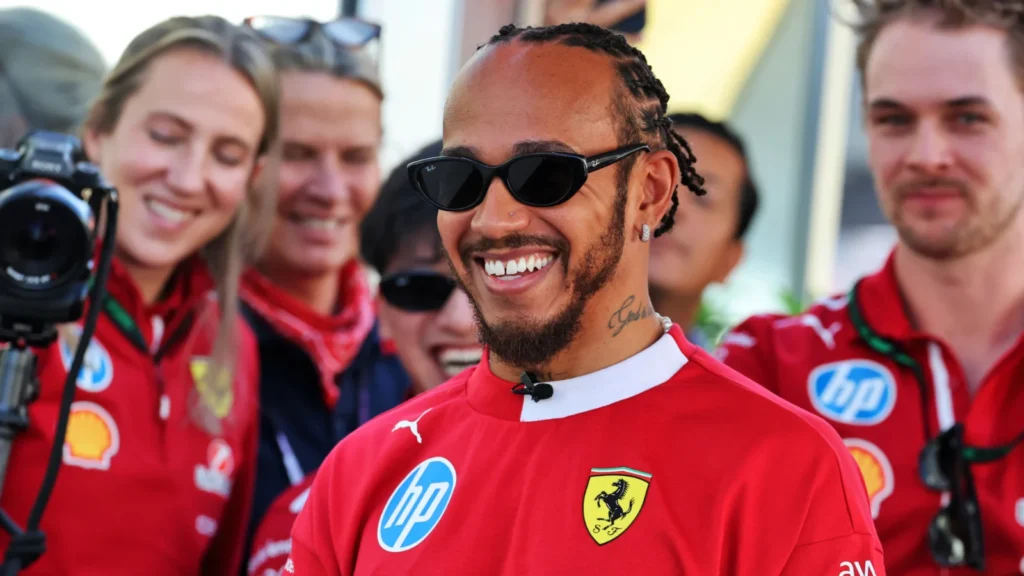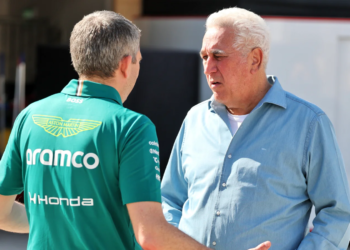Susie Wolff has never been shy about acknowledging the people who have helped shape modern Formula 1, and in her view, Lewis Hamilton does not receive enough recognition for how much he has changed the sport.
Speaking about Hamilton’s influence, the F1 Academy managing director explained that his legacy goes beyond his achievements on the track and extends into how Formula 1 is seen by the wider world.
Hamilton will look to build on his impressive record at the São Paulo Grand Prix, and while he is not a favourite to win, many of the best betting sites fast payout platforms have still priced the Formula 1 legend as a dark horse with 28/1 odds.
That figure will have devoted Ferrari and Hamilton fans placing wagers on the F1 icon at sports betting platforms known for offering competitive Formula 1 odds and attractive perks such as welcome rewards, deposit bonuses, and odds boosts, making them the ideal places to back Hamilton throughout the remainder of the season.
Wolff, who once served as a Williams test driver and remains the last woman to take part in an official Formula 1 race weekend back in 2014, reflected on how Hamilton’s willingness to stand up for issues that matter has helped redefine what a driver can represent.

Wolff noted that while many within motorsport follow a well-trodden path, Hamilton has always gone his own way, showing that a Formula 1 driver can use their platform for more than just racing success.
Hamilton’s time in the paddock has often been as influential as his performances on the circuit. His sense of style and confidence have turned the traditional pre-race walk into something of a cultural event, with drivers now treating it as a chance to express themselves rather than simply arriving at the garage.
Wolff believes this shift has made Formula 1 more relevant to people who might not have followed the sport before, opening the doors to new audiences and ideas.
The Ferrari driver has continued to make headlines in his first season with the Scuderia, even if podium finishes have so far eluded him. For Wolff, however, Hamilton’s impact cannot be measured purely by points or trophies.
She admires how he consistently uses his voice to speak up when silence would be easier. Whether tackling diversity, representation, or environmental issues, Hamilton has shown a level of leadership that extends far beyond his own results.
Under Wolff’s leadership, the F1 Academy has also sought to widen access and encourage new voices within the sport, which she credits to a growing understanding in Formula 1 that inclusivity benefits everyone. She sees Hamilton as a central part of that shift, helping to create a culture where individuality and authenticity are not only accepted but celebrated.
Hamilton’s influence has reached far beyond the boundaries of racing. His interest in fashion and music, along with his ability to connect with audiences outside traditional motorsport circles, has played a major role in elevating Formula 1 into the global mainstream.
Recently, SportsPro named him the world’s most marketable athlete, ranking above household US names such as Simone Biles, Stephen Curry, and Cristiano Ronaldo.
Even as he adapts to life at Ferrari, the seven-time world champion continues to inspire a new generation of drivers who see him as proof that speaking out and staying true to one’s values can coexist with elite performance.
Hamilton’s presence has helped Formula 1 evolve from a closed, technical world into a stage where style, culture, and personal expression matter as much as engineering and speed.
For Wolff, Hamilton’s story is not just about race wins or records but about courage and conviction. She believes he has helped turn Formula 1 into a space where drivers are not only athletes but ambassadors for change.
As Lewis looks ahead to what could still be a historic pursuit of an eighth world title, his broader contribution to how the sport looks, feels, and connects with people may well be the achievement that lasts the longest.








